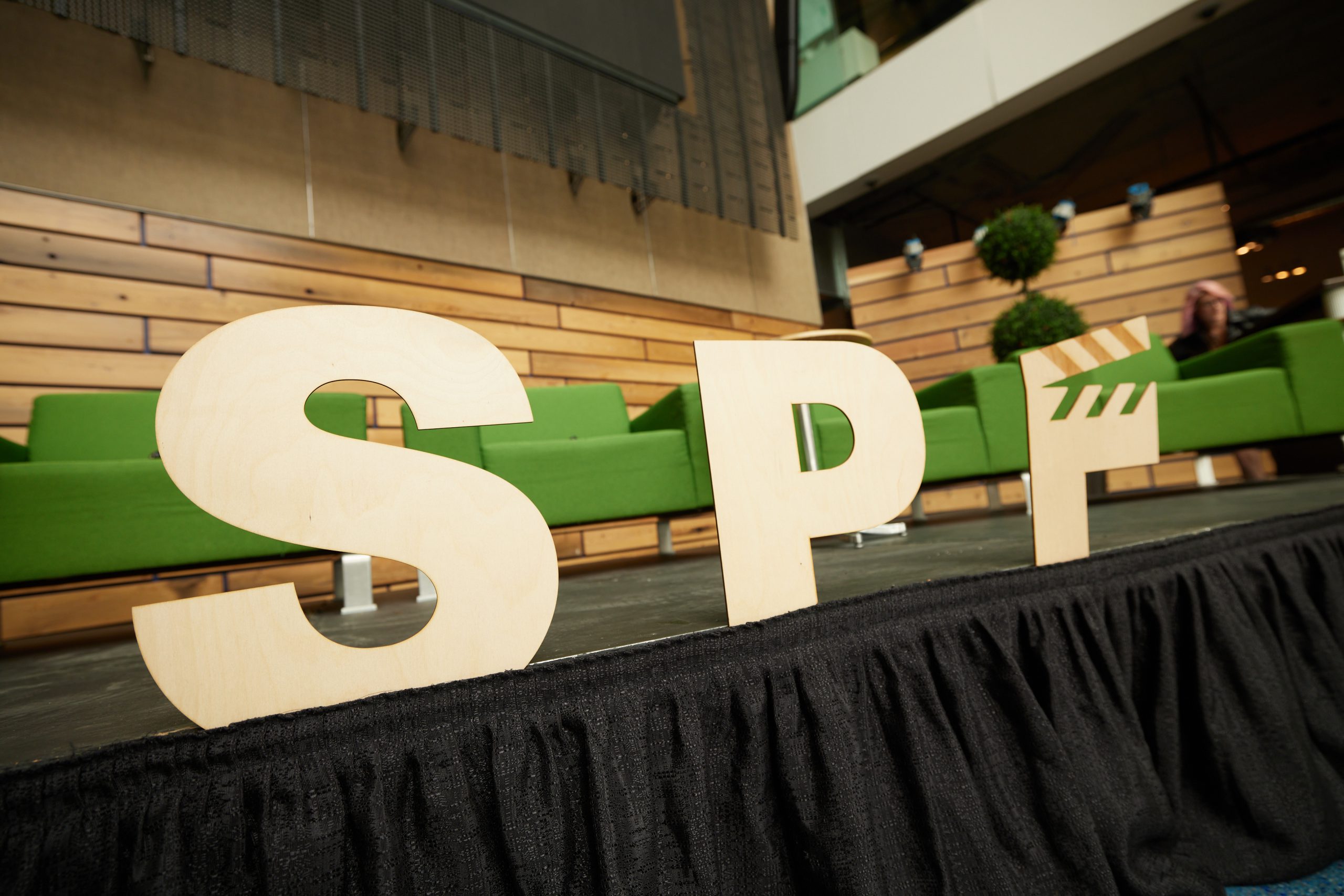Sustainable Production Forum sparks hope for increased industry collaboration

Green Spark Group president Zena Harris says the expanded hybrid event triggered much-needed discussion on how groups can work together on decarbonization.
A s the film and TV industry settles back to the relative normalcy of production, there seems to be an encouraging level of solidarity to improve the sector’s carbon footprint, says Green Spark Group president Zena Harris.
The expert on on-set sustainable practices organized the seventh annual Sustainable Production Forum (SPF), which had its largest year yet with three weeks of hybrid virtual and in-person programming – significantly up from last year’s five-day event – between Oct. 1 to 21. The forum kicked off in-person in Vancouver, with an additional two stops in Toronto (Oct. 6) and New York City (Oct. 11).
Green Spark Group met with local unions, guilds and trade associations in the lead-up to the event, which the group dubbed a “radical collaboration” session, to discuss how they might better work together on decarbonization efforts. Participants included ACTRA, ARRQ, the Canadian Media Producers Association’s BC branch, the Directors Guild of Canada (DGC) National, IATSE International, AQPM, NABET and the Writers Guild of Canada. Harris tells Playback Daily it was “the first time some of these organizations had come together in the name of sustainability,” with the results from these meet-ups to be released at a later date.
Other partners also unveiled new sustainability initiatives throughout the forum. William F. White International, for instance, announced at the in-person Toronto event that it would offer its zero-emission battery packs free of charge to customers during the 2022 United Nations Climate Change Conference (COP27), which takes place in Sharm El Sheikh, Egypt from Nov. 6 to 18.
Decarbonization is an increasingly pressing topic for the sector. The 2021 report from the Sustainable Production Alliance estimates that the average blockbuster film has a carbon footprint of 3,370 metric tons, while a one-hour scripted series comes to nearly 80 tons per episode. “Every film would need to basically plant a small forest to offset their carbon,” says Harris.
Expanding SPF to three weeks allowed for an increased volume of programming to move the conversation around decarbonization forward. Virtual sessions covered a variety of topics, including how to work sustainability into a production budget, as well as insight from outside industries to “shake up the way we think about how we do our work,” says Harris.
Other programming included moderated panel discussions with health and economic experts, as well as thought leadership from Netflix and BBC on their work toward more sustainable practices.
Virtual sessions were pre-recorded. SPF announced that recorded sessions are available to view free of charge until Nov. 31 in recognition of COP27.
Expanding the forum required a much larger budget, which was made possible by the addition of nearly a dozen new sponsors, including the Independent Production Fund, Cream Productions, DGC National, Corus Entertainment and Streamland Media. Green Spark Group intends to keep the bolstered hybrid model for future years, and is currently in the process of looking into the next three host cities for 2023.
Harris says a stand-out moment was in Toronto where Lisa Clarkson, executive director of business and rights and content optimization at CBC, spoke candidly about her experience learning about sustainability measures over the last three years, and taking “small steps” toward sustainability at CBC. The pubcaster set a carbon footprint requirement for English-language productions at the beginning of 2022, and has set a goal of decreasing its carbon emissions by 25% by 2026.
“That is really important to be able to say out loud for those who do think sustainability is daunting or they can’t really affect change in their own little world,” says Harris. “It opens a lot of doors for those who are new to this and who may be still taking small steps.”
Whether they’re big or little steps, Harris says the industry can’t afford to stall on decarbonization for much longer, referring to the wildfire smoke that impacted visibility in Vancouver in October.
“If you wanted a clear shot [of the skyline], you would have to delay,” she says. “There are real risks and costs to production if we as a society and business in general do not reduce our carbon emissions.”
Photo by Geoff George

 The definitive CDN broadcast and production resource.
The definitive CDN broadcast and production resource.










